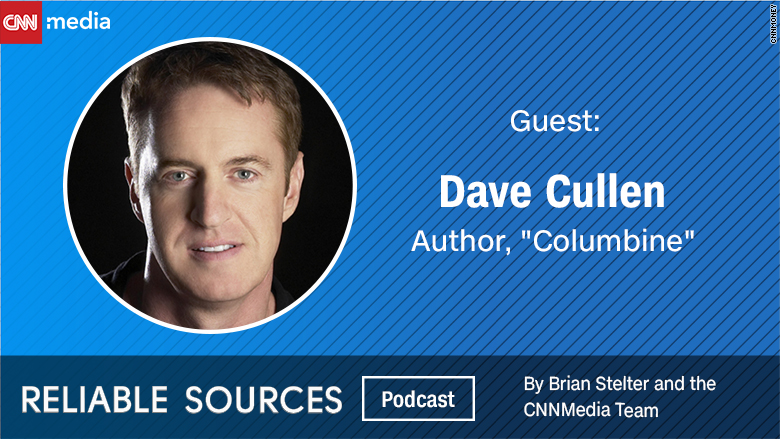
In the nearly 20 years between the shooting at Columbine High School in Colorado and Wednesday's shooting at Marjory Stoneman Douglas High School in Florida, terrorists have followed similar tactics to capture the media's attention.
"These people have figured out there's really two ways to sort of get on television to be the big story of the week," said Dave Cullen, the author of "Columbine." "One of them is the body count. The other is, call it creativity, to do something original."
A perpetrator only needs to carry out one of these angles to become a sort of "star of the week," he said.
Cullen sat down with CNN's Brian Stelter in the wake of the shooting, which claimed the lives of 17 people, to talk about reclaiming the media narrative in public shootings and terror attacks for this week's Reliable Sources podcast.
Listen to the whole podcast here:
Cullen chooses to label mass shootings as "spectacle murders, because it's really, that's what the heart of it is." To support his point, he referenced the book "Terror in the Mind of God" by Mark Juergensmeyer, who defines terrorism as "performance violence."
"That's in a nutshell what terrorism is," Cullen said. "It's violence, but made for TV."
Performance violence includes visual cues like costumes and symbols, especially ones inspired by previous attacks, Cullen explained.
And the motivation for attacks often goes back to a desire for power and for impact.
"When you look at the profile of most of these, [the shooter] is deeply, deeply depressed," Cullen told Stelter. For many of these attackers, he said, "all you want is to feel powerful and to feel heard and to make a statement."
Cullen said the press should adopt several approaches that dissuade any sort of star power motivation. The simplest thing, he said, is to cut back on mentions of the attacker's name and face.
"You know, 'disappearing the killer,' as I call it sometimes, or minimizing them, taking their power over," Cullen said.
"And by the way, you know, viewers or readers, they can Google," Cullen said. "Everybody has Google now. You can find it. So we're not, you know, we're not stopping anything."
Cullen also brought up a need for less coverage, recommending that shows give viewers updates during the first 10, 15, or 20 minutes at the top of the hour. That way, he said, "you're getting 90, you know, 95 percent of your journalistic needs met and your viewer needs met by scaling back to half or three-quarters of it."
Finally, the media should avoid ranking the worst shootings, Cullen said.
"It's like we're awarding them," he said. "It's like you got the gold medal, you're going up onto the platform, your national anthem is being played, that sort of thing."
Cullen summed up the media's role in mass shootings this way: "I think the first thing we as journalists have to do is just accept that it's a reality, that we are part of the equation. We didn't start this. Obviously we're not pulling the trigger. But we're giving them the stage."


